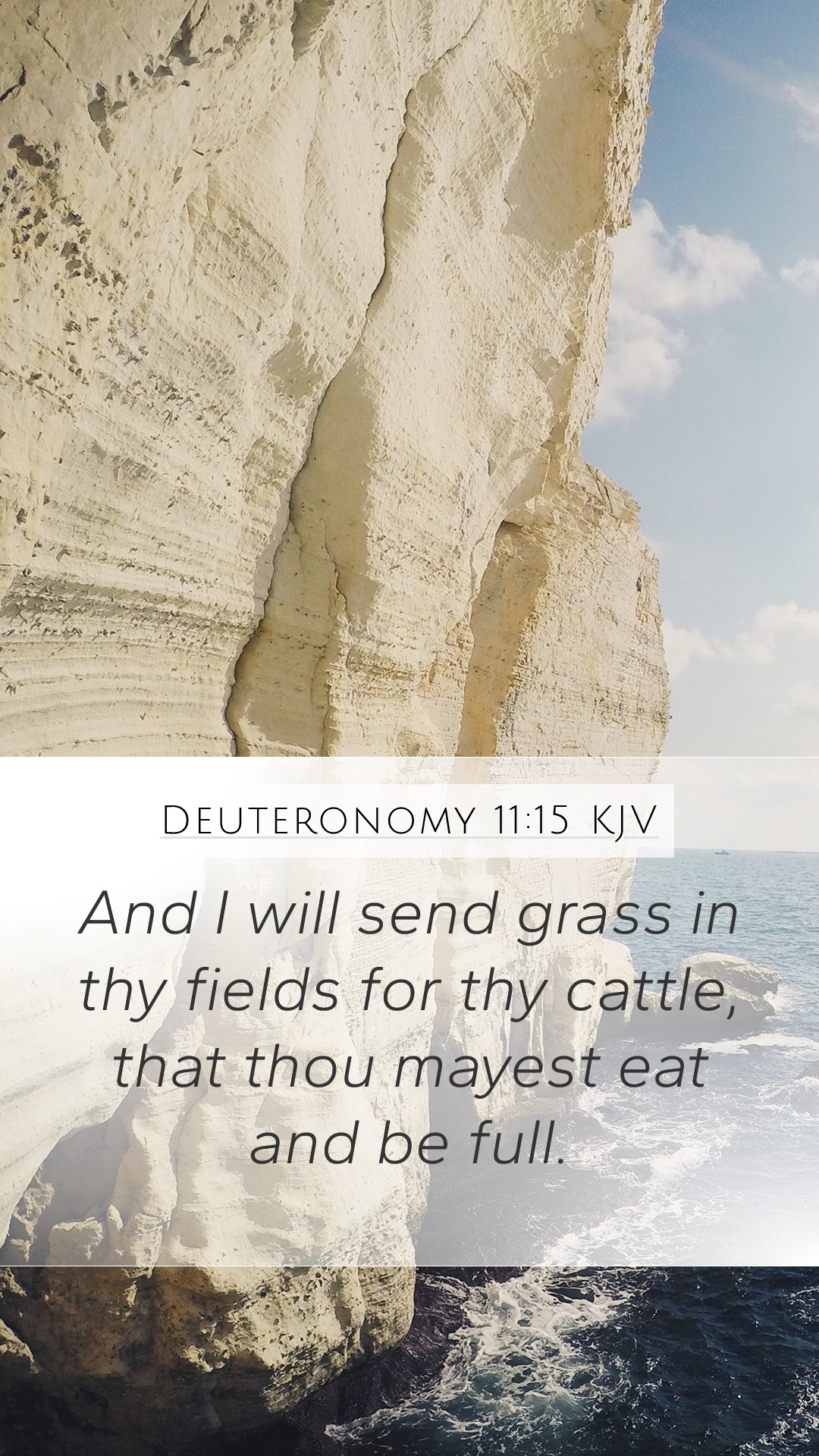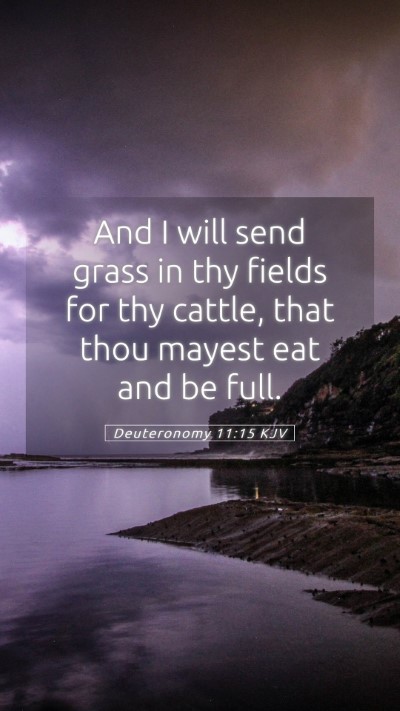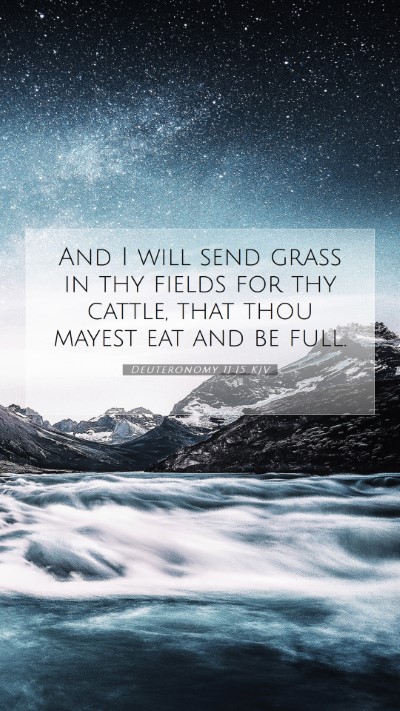Understanding Deuteronomy 11:15
Bible Verse: Deuteronomy 11:15 - “And I will send grass in thy fields for thy cattle, that thou mayest eat and be full.”
Overview of the Verse
Deuteronomy 11:15 is a promise from God to the Israelites regarding the abundance that will come from their obedience to His commandments. This verse emphasizes God’s provision, not just spiritually, but also physically, ensuring that through adherence to His laws, the people will find prosperity and satisfaction in their daily needs.
Bible Verse Meanings and Interpretations
The verse holds a profound meaning that speaks to both the physical and spiritual nourishment found in God’s care for His people.
-
Matthew Henry's Commentary:
Matthew Henry highlights that the promise of grass signifies not only the provision for cattle but also symbolizes the abundance found in the land when one lives in accordance with God’s will. This abundance is not automatic but flows from the covenant relationship between God and His people.
-
Albert Barnes' Commentary:
Barnes reflects on the metaphor of grass, noting it represents the necessary sustenance and the blessings that come from God. The promise is conditional, implying that obedience leads to blessings, and neglect brings want. Barnes stresses the importance of recognizing God as the source of all that one needs.
-
Adam Clarke's Commentary:
Clarke points out that the phrase “that thou mayest eat and be full” speaks to God's intention for His people to live in abundance. The reference to cattle indicates a cycle of life and a community that thrives when aligned with God's precepts. Clarke emphasizes that true fulfillment comes from aligning one’s life with God's commands.
Scripture Analysis
This verse serves to reassure the Israelites of God’s faithfulness to provide for their needs, encouraging a life of obedience in return for His generosity.
Contextual Background
The context of Deuteronomy places these words within Moses’ farewell speeches to the Israelites as they prepare to enter the Promised Land. The themes of obedience, blessings, and divine provision are central to understanding this covenant relationship.
Relationship to Other Scriptures
- Psalm 104:14 - God provides grass for the cattle.
- Matthew 6:26 - God cares for the birds; how much more for you?
- Philippians 4:19 - God will supply all your needs according to His riches.
Application for Bible Study
This verse serves as a reminder to engage in Bible study topics focused on God’s provision and the conditional nature of His blessings.
For Bible study groups, this verse can provoke discussions around:
- How to interpret Bible verses on God’s provision.
- The importance of obedience in one’s life.
- Impact of historical context on the interpretation of blessings.
In-Depth Bible Verse Analysis
Studying Deuteronomy 11:15 offers valuable insights:
- Understanding Scripture: Recognizing God’s promises as foundational to a believer’s life.
- Biblical Exegesis: Exploring the implications of living in covenant with God.
- Bible Study Insights: Applying these lessons to contemporary views on prosperity and obedience.
Meaning of Bible Verses in Daily Life
This verse prompts believers to reflect on the areas of life where they seek God’s provision. How can one align daily actions to invite God’s blessings? It challenges individuals to consider their response to God’s generosity through gratitude and obedience.


